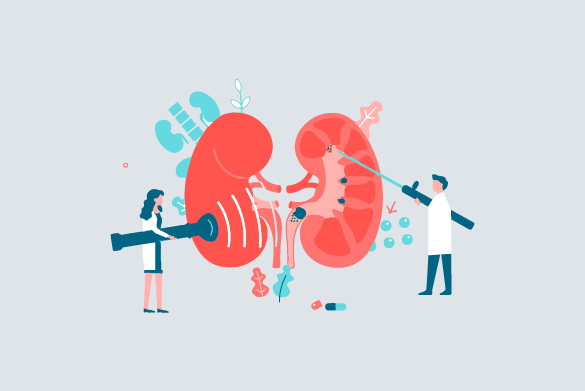
DM - Paediatric Nephrology
- 1 Colleges
The study of renal organs or the study of functions and conditions related to the kidney is known as nephrology..
The study of renal organs or the study of functions and conditions related to the kidney is known as nephrology. Nephrology is one of the most important disciples in medicine owing to the possibly large number of diseases that affect people daily due to kidney problems. The study of the changes, functions, and diseases related to infants, children, or adolescents is known as pediatric medicine. This specialty of medicine can be surgical or nonsurgical. Due to the tremendous amount of variation, in anatomy and underlying conditions, pediatric medicine is a medical field with a huge amount of scope. Due to the absolute difference in the physiology of the patients in comparison to those of adults, a physician should keep in mind to take that into account, while diagnosis, treatment, and management of conditions. It also impacts, the pharmacokinetic properties that different drugs that are prescribed for various diseases. Pediatric patients absorb, distribute, metabolize and eliminate medicine differently. Due to this there also is a possibility intense research that is required in this field of medicine to be conducted.
The course takes hand in hand the study of pediatrics and nephrology simultaneously, aspirants are required to keep in mind the nature of the patients their psychological differences, and their possible reactions to different treatments from other patients, in general, The course aims to train students to be able to, analyze problems and scientifically take into account the epidemiology and biological basis of renal diseases in infants and children. It also trains the student to be able to provide acute care to those patients who have been diagnosed with such diseases, search and seek for the possibility of surgical interventions that could act as treatment, be able to methodize and create a plan that involves following up on the patients that are diagnosed with chronic diseases to the kidney (this includes transplant). It also would like to train patients to be able to study and analyze different literature in this specialty and incorporates those studies in their day-to-day work. It would also like their students to be capable of noticing patterns and treatment plans that have not been recorded yet and create studies based on the same to be able to act as a gateway in the prevention and treatment of all forms of renal disorder. The course follows a practical approach towards the learning and understanding of these conditions, but the major forms studies include the study of the anatomy and embryology of the kidneys, it trains the student to have basic knowledge in renal pathology, it then studies the physiology of the kidney, cover major points in penal therapeutics. It follows this with the study of kidney diseases during pregnancy, kidney diseases in children, interstitial diseases, basic knowledge of Immunology, hereditary congenital kidney diseases, hypertension and vascular diseases, and kidney disorders in geriatrics.
The Doctor of Medicine (DM) - Pediatric Nephrology is a postgraduation, specialty course that studies the possible diseases related to the kidney in children, infants, and adolescents. The course requires applicants to have completed a certification in medicine by a recognized state or central medical board. A graduate has the possibility of working in the field of Pediatric Nephrology and act as a physician in government or private health care facilities or hospitals.
